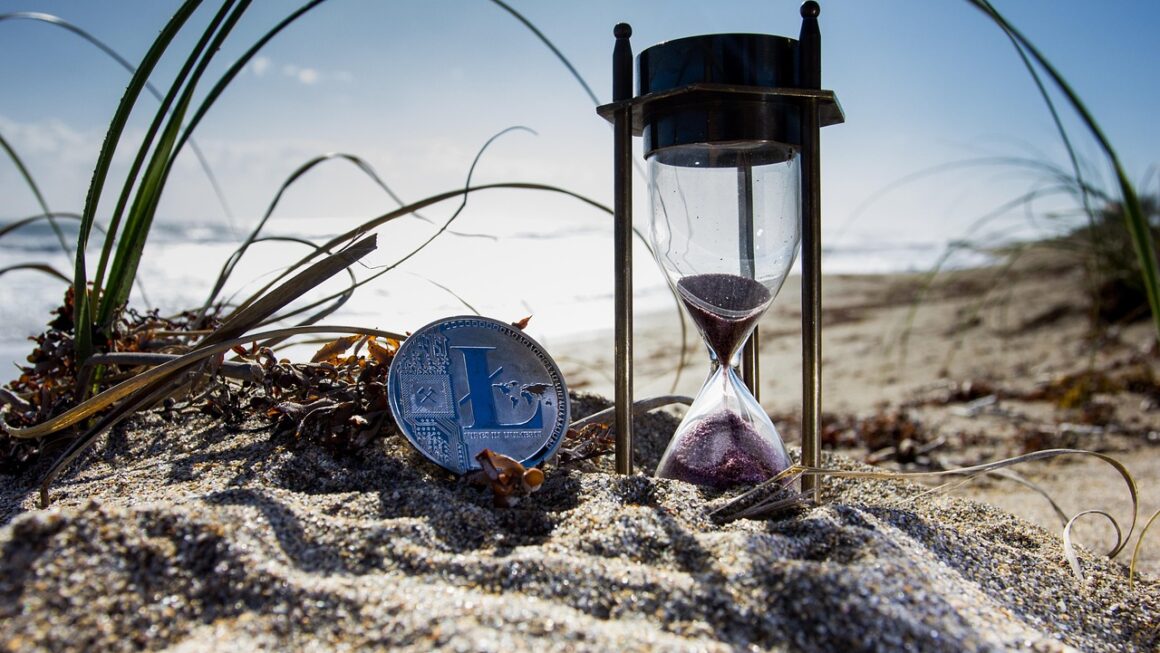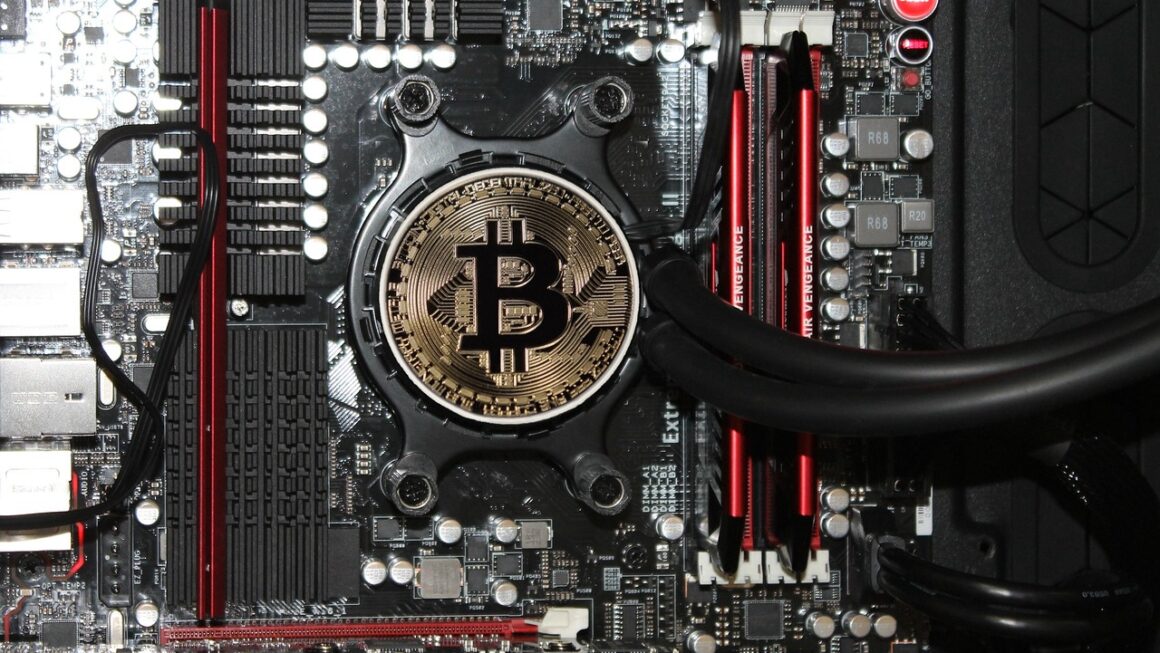Zk-rollups are revolutionizing Ethereum scaling and privacy, offering a promising solution to the blockchain’s persistent challenges of high transaction fees and slow processing speeds. But what exactly are they, and why are they gaining so much traction? This guide will delve into the intricacies of zk-rollups, exploring their mechanics, advantages, and potential impact on the future of decentralized applications (dApps).
Understanding ZK-Rollups: The Basics
Zk-rollups, short for Zero-Knowledge Rollups, are a Layer 2 scaling solution that bundles or “rolls up” multiple transactions into a single transaction on the main Ethereum chain. They leverage zero-knowledge proofs, a cryptographic technique, to verify the validity of these transactions without revealing the underlying data. This significantly reduces the amount of data that needs to be stored and processed on the main chain, leading to increased throughput and lower gas fees.
How ZK-Rollups Work
The core principle of zk-rollups revolves around taking transaction execution off the Ethereum mainnet. Here’s a simplified breakdown:
- Off-Chain Computation: Transactions are executed off-chain in a separate environment.
- State Updates: The state changes resulting from these transactions are recorded.
- Generating the Proof: A validity proof, specifically a zero-knowledge proof like a SNARK (Succinct Non-Interactive Argument of Knowledge) or a STARK (Scalable Transparent Argument of Knowledge), is generated to demonstrate the correctness of the state transition.
- On-Chain Verification: This proof, along with the compacted transaction data, is then submitted to the Ethereum mainnet.
- State Commitment: A smart contract on the Ethereum chain verifies the proof. If the proof is valid, the rollup’s state is updated.
Key Terminology
- Zero-Knowledge Proof (ZKP): A cryptographic method that allows one party (the prover) to prove to another party (the verifier) that a statement is true, without revealing any information beyond the validity of the statement itself.
- SNARK (Succinct Non-Interactive Argument of Knowledge): A type of ZKP known for its short proof size and fast verification time. Requires a trusted setup.
- STARK (Scalable Transparent Argument of Knowledge): Another type of ZKP that doesn’t require a trusted setup and offers better scalability. Proofs tend to be larger than SNARKs.
- Rollup Operator: The entity responsible for bundling transactions, generating proofs, and submitting them to the main chain.
- Validity Proof: The cryptographic proof generated by the rollup operator to demonstrate the validity of the off-chain transactions.
Benefits of Using ZK-Rollups
ZK-Rollups offer a compelling set of advantages over other scaling solutions, particularly in terms of scalability, security, and privacy.
Enhanced Scalability
- Increased Throughput: By processing transactions off-chain and only submitting proofs on-chain, zk-rollups can significantly increase the number of transactions processed per second (TPS). Estimates range from 1000-2000+ TPS.
- Reduced Gas Fees: Compacting transaction data and verifying it with proofs dramatically reduces the gas costs associated with each transaction. Users experience significantly lower fees compared to transacting directly on the Ethereum mainnet. For example, transferring ETH might only cost a few cents.
Strong Security
- Inherited Ethereum Security: Because the validity proofs are verified by a smart contract on the Ethereum mainnet, zk-rollups inherit the security of the underlying blockchain.
- Cryptographic Guarantees: The use of zero-knowledge proofs provides strong cryptographic guarantees that the state transitions are valid. Malicious operators cannot falsify transactions or steal funds.
Improved Privacy
- Private Transactions: ZK-Rollups can enable private transactions by concealing the sender, receiver, and amount of transactions. The validity proof ensures the transaction is valid without revealing the specifics.
- Compliance: The technology can also be adapted to allow for selective disclosure, meeting regulatory requirements while preserving user privacy where possible.
Practical Example: Payments
Consider a scenario where multiple users are making frequent micro-payments. Without a rollup, each transaction would require paying high gas fees on the Ethereum mainnet. Using a zk-rollup, these transactions can be processed off-chain, and only the aggregated state update is verified on-chain, resulting in significantly lower overall costs for all involved users.
ZK-Rollups vs. Other Scaling Solutions
It’s important to differentiate zk-rollups from other scaling solutions to understand their unique position in the blockchain ecosystem.
ZK-Rollups vs. Optimistic Rollups
| Feature | ZK-Rollups | Optimistic Rollups |
| —————- | ———————————————- | ———————————————- |
| Validity | Validity proofs (SNARKs/STARKs) | Fraud proofs |
Authentication Beyond Passwords: Securing the Future
| Security | Inherently secure, cryptographic guarantees | Relies on fraud challenges, potentially vulnerable during the challenge period |
| Withdrawal Time | Faster withdrawal times (minutes to hours) | Longer withdrawal times (days to weeks) |
| Complexity | More complex to implement | Simpler to implement |
| EVM Compatibility| More challenging | More straightforward |
ZK-Rollups vs. Sidechains
| Feature | ZK-Rollups | Sidechains |
| —————- | ——————————————– | ———————————————– |
| Security | Inherits Ethereum security | Relies on its own consensus mechanism |
| Trust Assumption | Less trust required | More trust required |
| Scalability | Good scalability, inherent Ethereum security | High scalability, but potentially less secure |
Example: Choosing the Right Solution
If you need a solution with extremely high security and faster finality, ZK-Rollups are preferred. If you require a simpler implementation and are willing to trade off some security for ease of development, optimistic rollups might be more suitable. Sidechains are best for applications needing extreme throughput, but are willing to sacrifice security and decentralization.
Current Projects and Future Developments
The ZK-Rollup space is rapidly evolving, with numerous projects actively developing and deploying zk-rollup solutions.
Prominent Projects
- zkSync: Focuses on general-purpose ZK-Rollups with EVM compatibility, aiming to bring scalable, secure, and low-cost transactions to a wider range of Ethereum applications.
- StarkWare: Developing STARK-based solutions, including StarkEx (a permissioned rollup service) and StarkNet (a decentralized, permissionless rollup).
- Polygon Hermez: A decentralized, open-source ZK-Rollup optimized for payments and token transfers.
- Scroll: Aims to build an EVM-equivalent ZK-Rollup, allowing existing Ethereum smart contracts to be deployed without modification.
Challenges and Future Trends
- EVM Compatibility: Achieving full EVM (Ethereum Virtual Machine) compatibility is a major challenge, as zero-knowledge proofs are more complex for certain EVM opcodes. Significant progress is being made on this front, with projects like Scroll working on EVM-equivalent ZK-Rollups.
- Proving Time: Generating zero-knowledge proofs can be computationally intensive, especially for complex transactions. Innovations in proof generation algorithms and hardware acceleration are crucial for improving proving times.
- Adoption: Wider adoption requires developer-friendly tooling, documentation, and education. As the ecosystem matures, expect to see more resources and support for building on ZK-Rollups.
- Privacy Enhancement: Further advancements in zero-knowledge cryptography will enable more sophisticated privacy features, such as confidential smart contracts and anonymous transactions.
Getting Started with ZK-Rollups
Interested in experimenting with zk-rollups? Here are a few practical steps to get started.
Exploring Existing Solutions
- zkSync Era: Transfer ETH or tokens on zkSync Era to experience low gas fees and fast transactions.
- Immutable X: If you are interested in NFTs, explore projects built on Immutable X.
Development Resources
- StarkWare Documentation: Dive into the StarkWare documentation to learn about STARK-based development.
- zkSync Documentation: Explore the zkSync developer documentation for developing on zkSync.
Actionable Tips
- Start Small: Begin with simple examples and gradually increase complexity.
- Community Engagement: Join relevant online communities and forums to connect with other developers and learn from their experiences.
- Stay Updated: Follow the latest developments in the zk-rollup space through blogs, articles, and research papers.
Conclusion
ZK-Rollups represent a significant advancement in blockchain scaling and privacy. While still in their early stages, they offer a promising path towards a more scalable, secure, and user-friendly Ethereum ecosystem. As projects continue to develop and mature, zk-rollups are poised to play a crucial role in the future of decentralized finance and beyond. Understanding their fundamentals and exploring their potential applications is essential for anyone interested in the evolution of blockchain technology.
Read our previous article: PaaS: The Agile Launchpad For Sustainable Innovation
For more details, see Investopedia on Cryptocurrency.




